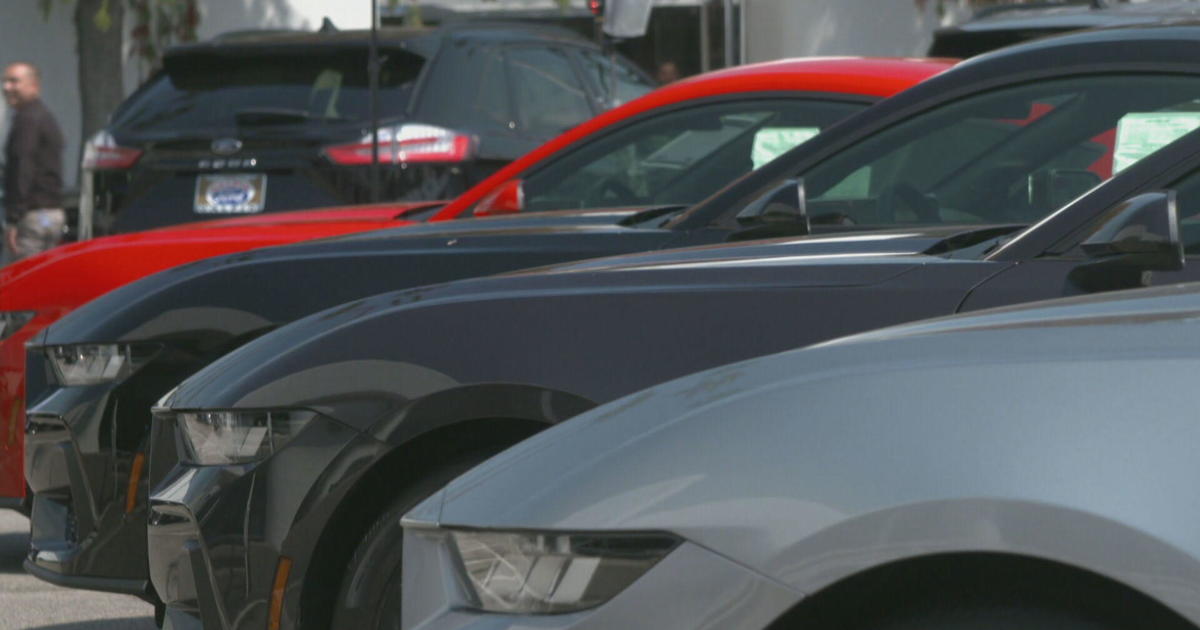Understanding the Current Automotive Market Landscape
The automotive market is undergoing significant changes, driven by a combination of economic factors, shifting consumer preferences, and evolving technology. As the market fluctuates, car owners are faced with a critical decision: should they trade in their vehicle or hold onto it? While trading in might seem like a convenient option, experts caution that it could lead to hidden risks and costs that car owners should carefully consider.
The Appeal of Trading In
Trading in a vehicle to purchase a new one can be an appealing option for many reasons:
- Convenience: Trading in can streamline the car buying process, allowing owners to apply the trade-in value directly to the purchase of a new vehicle.
- Financial Incentives: Many dealerships offer promotional trade-in values that can make upgrading seem financially attractive.
- Depreciation Management: New cars depreciate quickly, and trading in a vehicle can help offset some of this loss.
However, these benefits often come with hidden risks that can outweigh the advantages.
Market Trends Influencing Trade-In Decisions
Several key market trends are currently influencing the decision to trade in a vehicle:
1. Supply Chain Disruptions
The COVID-19 pandemic has caused significant disruptions in the automotive supply chain, resulting in a shortage of new vehicles. This shortage has led to increased demand for used cars, which has, in turn, raised their resale values. As a result, car owners who choose to trade in their vehicles might miss out on the opportunity to sell them privately for a higher price.
2. Rising Interest Rates
Interest rates have been climbing, which affects financing options for new car purchases. Higher interest rates can lead to increased monthly payments, making it less financially viable to trade in a car unless the trade-in value is significantly high. This scenario forces buyers to reassess their financial capabilities and the true cost of upgrading.
3. Evolving Consumer Preferences
Consumers are increasingly leaning towards electric vehicles (EVs) and hybrid models. This shift may render traditional combustion engine vehicles less desirable, impacting their trade-in value. Owners of older models might find that trading them in could lead to a significant financial loss, as dealerships might offer lower valuations for vehicles they perceive as less marketable.
Hidden Costs of Trading In
While trading in a vehicle can be convenient, several hidden costs can emerge, making it a potentially costly decision:
1. Lower Trade-In Values
Dealerships often offer lower trade-in values than what car owners could receive through private sales. This discrepancy can result in thousands of dollars lost in value. According to automotive industry research, the average trade-in value can be 10% to 20% lower than private sale prices.
2. Negotiation Disadvantages
When trading in, car owners may face a disadvantage in negotiations. Dealers often bundle the trade-in value with the new vehicle price, making it challenging for sellers to understand the true value they are receiving. This lack of transparency can lead to unfavorable deals.
3. Tax Implications
In some regions, trading in a vehicle can have tax implications. For example, in certain states, car owners may only pay sales tax on the difference between the new vehicle’s price and the trade-in value. However, if the trade-in value is lower than expected, this tax advantage could diminish, leading to higher out-of-pocket expenses.
Exploring Alternatives to Trading In
For car owners considering their options, several alternatives may provide better financial outcomes:
1. Selling Privately
Selling a car privately generally yields higher returns than trading it in. Websites like Craigslist, Facebook Marketplace, and specialized platforms like CarGurus or Autotrader can connect sellers with potential buyers. Although this process requires more effort, the financial benefits can be significant.
2. Using Online Car Buying Services
Several online platforms, such as Vroom and Carvana, offer competitive prices for used cars without the need for trade-ins. These services often provide quick appraisals and facilitate a straightforward selling process.
3. Holding on to Your Vehicle
In uncertain economic times, holding onto a vehicle may be the wisest choice. Maintaining the current vehicle while waiting for the market to stabilize can help owners maximize their investment. Additionally, keeping a reliable vehicle can provide financial stability in the long run.
Broader Implications of Trading Decisions
The decision to trade in a vehicle extends beyond personal finances; it can impact broader market dynamics:
1. Environmental Considerations
As consumers shift towards more sustainable options, the decision to trade in older, less efficient vehicles can contribute positively to environmental goals. However, it is essential to consider the environmental cost of manufacturing new vehicles and the resources involved in disposing of older models.
2. Market Volatility
The automotive market is influenced by various factors, including economic conditions, consumer confidence, and technological advancements. As trends evolve, car owners’ decisions to trade in their vehicles can have ripple effects on market pricing and availability.
Conclusion: Making Informed Decisions
In the current automotive landscape, car owners must navigate numerous factors when deciding whether to trade in their vehicle. While trading in can offer convenience, it is critical to consider the hidden risks and costs involved. By understanding market trends, exploring alternative selling strategies, and weighing the broader implications, car owners can make informed decisions that align with their financial goals and personal circumstances.
Ultimately, staying informed and seeking expert advice can empower car owners to navigate the evolving automotive market successfully. Whether choosing to trade in, sell privately, or hold onto a vehicle, understanding the landscape is key to making the best choice for one’s financial future.
See more Business Focus Insider Team

